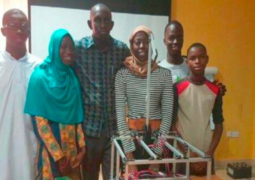The International Trypanotolerance Centre on Wednesday ended three-day training on Moringa Project extension at the Baobab Hotel. The training, among others, was aimed at sensitising participants on the importance of the new Moringa plant, its usefulness to both human and animal life.
Speaking at the occasion, Mr. Buba Jobe, Acting Director of International Trypanotolerance Centre stated that there is a growing disparity between population growth and food producing capacity around the world, especially countries in the sub- Saharan Africa where The Gambia is located.
He further noted that as living standards rise, so does consumption of livestock production. He said the livestock sub-sector play a very important role in the socio-economic development of the country.
According to him, despite the increasing number of livestock number, its productivity is low. Mr. Jobe stated that the constraints of raising the productivity of livestock, especially ruminants are many but the provision of feeding resources and lack of adequate nutritional quality is likely to be the most limiting factor.
"This is not to suggest that other aspects of husbandry are un-important but if the general number and production will be controlled, other aspects such as breed improvement and health measures will have little effects unless nutritional requirement are met," he said.
He said to address this situation and increase agricultural productivity to the level needed will require among other factors accelerated adoption of the most-promising available technology so as to supply immediate improvement of production by linking research and extension system to produce more efficiently.
He further noted that the implementation of the above-identified strategies was the main thrust of the three-years IDRC-sponsored ITC project on Moringa- based livestock feed whose overall objective is to enhance food income security of farmers, especially women, through environmentally sound and integrated farming systems.
He stated that this minimal external-input requirement when complemented by stakeholders would increase the attractiveness of the technologies to poor small holder farmers.
Read Other Articles In Article (Archive)
The President has a point
Jan 14, 2010, 1:23 PM
Gamcel Donates Sporting Gear to Five Organisations
Mar 26, 2008, 8:10 AM



